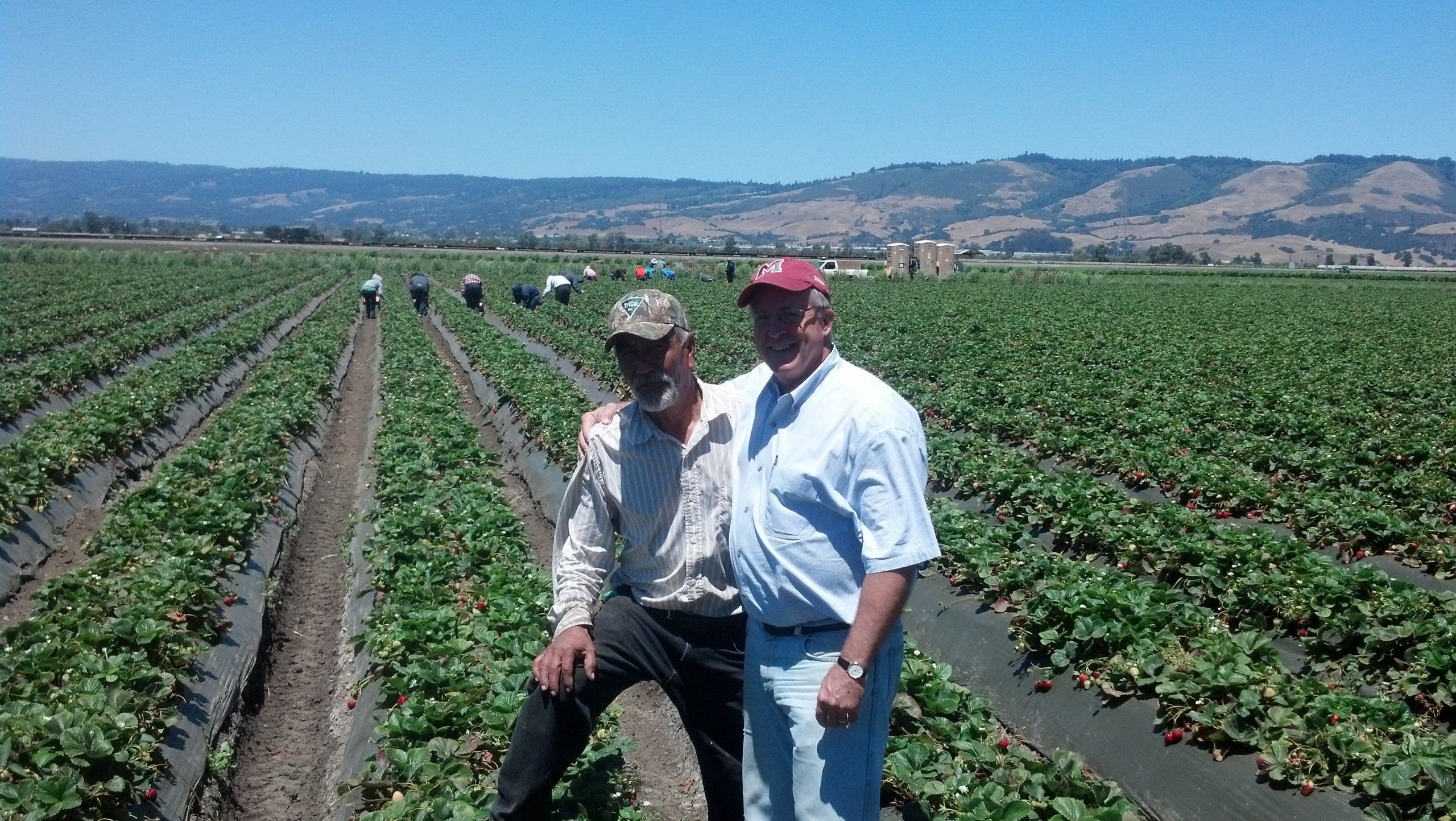Editor’s Note:California Safe Soils is currently running its fundraising campaign on AgFunder. The company will be holding an investor webinar on March 5th.
As the global food security crisis becomes a reality, the United States faces an urgent problem: we’re tossing away food at an alarming rate. According to data from a 2014 report published by the USDA, 31 percent of the food supply, valued at $161.6 billion, was thrown out in 2010. At the retail level, a massive 43 billion pounds of food was discarded from supermarket shelves.
Outraged by such statistics, Dan Morash launched California Safe Soil (CSS) in 2012 to give organic waste new life. The West Sacramento-based company collects unsold fresh food from supermarkets and recycles it into a low-cost, nutritious liquid fertilizer for crops.
“A typical supermarket throws away 500 pounds of food every day,” said Morash, who has a background as an investor banker in the renewable energy space. “And that waste will usually get sent straight to a landfill. ”
Rather than being incinerated to ashes or rotting away in a dump, 100 percent of unwanted food, ranging from fruits and vegetables to cold cuts from the deli section, is picked up by the CSS team and brought to the company’s pilot plant for processing. Once there, the waste is ground up and broken down by enzymes in a proprietary process that takes three hours. The final result is a liquid soil amendment called Harvest to Harvest (H2H), which can be delivered to the root zone via standard irrigation equipment.
“We found out how to capture nutritional value in an effective way,” Morash said. CSS claims its process is 720 times more efficient than traditional composting, which takes around three months. Even then, Morash says nutrient value can be lost in the lengthy decomposition process.
The benefits from retailer and farmer perspectives are multifaceted, Morash explained. For a small pick-up fee, supermarkets working with CSS become waste free, leading to more hygienic facilities. On the other end of the spectrum, farmers can cut labor costs associated with fertilizer application, reduce nitrate runoff on their land, and eventually, increase crop yield.
In research trials conducted by Holden Research & Consulting, strawberry plants treated with H2H experienced an increased yield of up to 30 percent, and in a separate trial, tomato yield increased up to 25 percent. Additionally, researchers recorded a decrease in water use of up to 25 percent on tomato crops, which could give growers a boost when resources are limited during drought conditions.
Late 2014 earned CSS excellent exposure in the Salinas Valley. The company was one of ten finalists chosen to participate in the Thrive Accelerator program in December, and received mentorship by Lorri Koster, CEO of leading veggie supplier Mann Packing Co. The finalists will complete the program with a demo day at the National Steinbeck Center in Salinas on March 4, followed by attendance at SVG Partners and Forbes magazine’s “Forbes Reinventing America: The AgTech Summit” this July.
Sustainability in food production and waste management isn’t the only thing on Morash’s mind as he scales up his business. “It has to be great economics for this to work,” he said about CSS’s future.
CSS has raised $9 million to date, and is launching a new fundraising campaign with AgFunder this week. The company is currently under contract with the Save Mart chain, which supplies organic waste to CSS from its 225 stores, and also has agreements in place with Safe Way, Nuggets Market, Whole Foods, and Grocery Outlet. With additional funding, CSS plans on constructing new plants, expanding its supermarket client base, and developing specialized formulas of H2H for specific crops and farming operations.
FEATURED PHOTO: California Safe Soil






